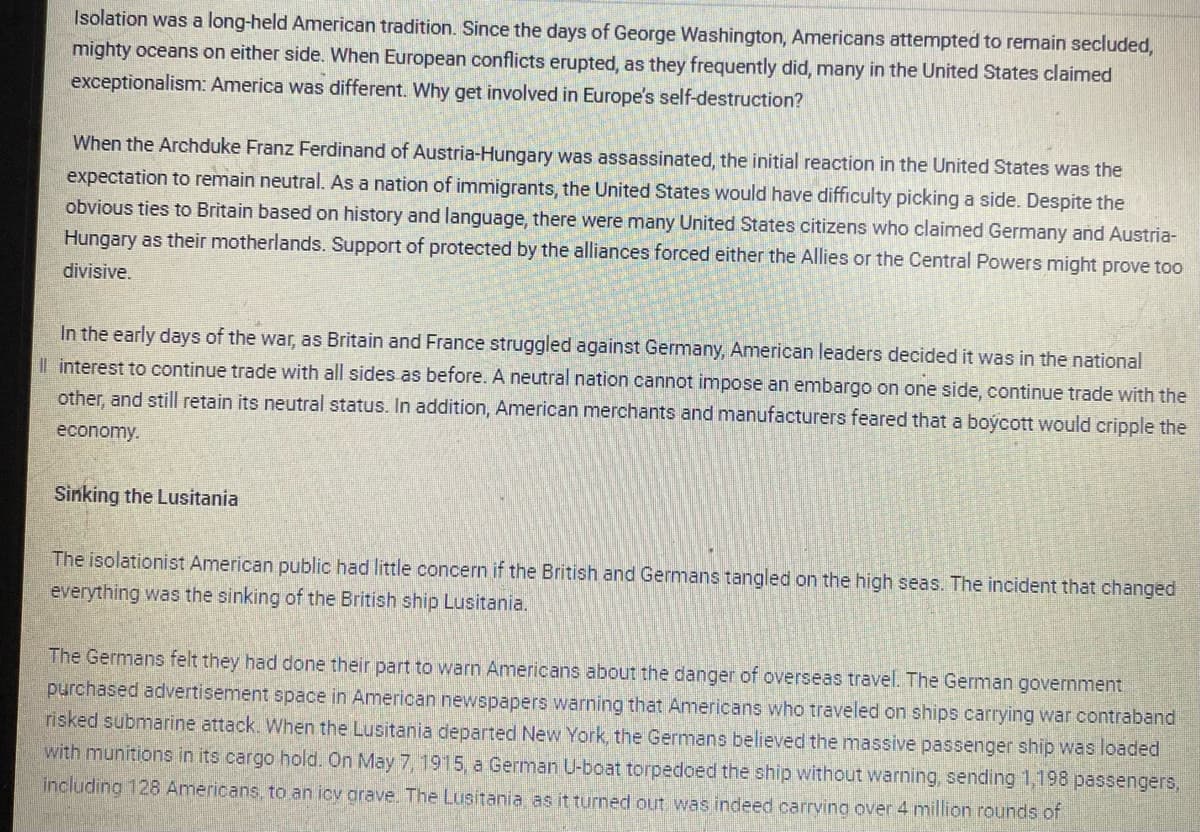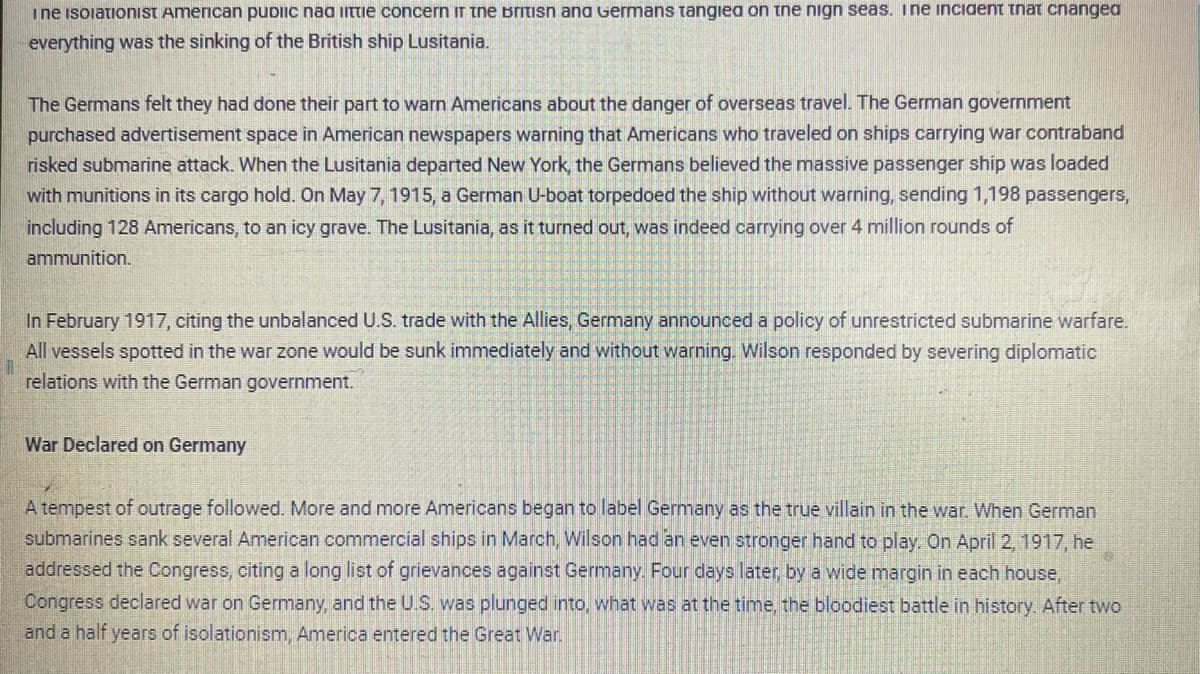In the reading, “To the Front Lines: America in World War I,” the text discusses American neutrality and isolationism leading up to the war. Analyze the shift in policies and values in the United States' foreign relations from isolation to participating in the war. Be sure to explain key ideas such as neutrality and isolationism
In the reading, “To the Front Lines: America in World War I,” the text discusses American neutrality and isolationism leading up to the war. Analyze the shift in policies and values in the United States' foreign relations from isolation to participating in the war. Be sure to explain key ideas such as neutrality and isolationism
Related questions
Question
100%
In the reading, “To the Front Lines: America in World War I,” the text discusses American neutrality and isolationism leading up to the war. Analyze the shift in policies and values in the United States' foreign relations from isolation to participating in the war. Be sure to explain key ideas such as neutrality and isolationism.

Transcribed Image Text:Isolation was a long-held American tradition. Since the days of George Washington, Americans attempted to remain secluded,
mighty oceans on either side. When European conflicts erupted, as they frequently did, many in the United States claimed
exceptionalism: America was different. Why get involved in Europe's self-destruction?
When the Archduke Franz Ferdinand of Austria-Hungary was assassinated, the initial reaction in the United States was the
expectation to remain neutral. As a nation of immigrants, the United States would have difficulty picking a side. Despite the
obvious ties to Britain based on history and language, there were many United States citizens who claimed Germany and Austria-
Hungary as their motherlands. Support of protected by the alliances forced either the Allies or the Central Powers might prove too
divisive.
In the early days of the war, as Britain and France struggled against Germany, American leaders decided it was in the national
Il interest to continue trade with all sides as before. A neutral nation cannot impose an embargo on one side, continue trade with the
other, and still retain its neutral status. In addition, American merchants and manufacturers feared that a boycott would cripple the
economy.
Sinking the Lusitania
The isolationist American public had little concern if the British and Germans tangled on the high seas. The incident that changed
everything was the sinking of the British ship Lusitania.
The Germans felt they had done their part to warn Americans about the danger of overseas travel. The German government
purchased advertisement space in American newspapers warning that Americans who traveled on ships carrying war contraband
risked submarine attack. When the Lusitania departed New York, the Germans believed the massive passenger ship was loaded
with munitions in its cargo hold. On May 7, 1915, a German U-boat torpedoed the ship without warning, sending 1,198 passengers,
including 128 Americans, to an icy grave. The Lusitania, as it turned out was indeed carrying over 4 million rounds of

Transcribed Image Text:I ne isolationist American public naa little concern in the British and Germans tangiea on the nign seas. Ine incident that changed
everything was the sinking of the British ship Lusitania.
The Germans felt they had done their part to warn Americans about the danger of overseas travel. The German government
purchased advertisement space in American newspapers warning that Americans who traveled on ships carrying war contraband
risked submarine attack. When the Lusitania departed New York, the Germans believed the massive passenger ship was loaded
with munitions in its cargo hold. On May 7, 1915, a German U-boat torpedoed the ship without warning, sending 1,198 passengers,
including 128 Americans, to an icy grave. The Lusitania, as it turned out, was indeed carrying over 4 million rounds of
ammunition.
In February 1917, citing the unbalanced U.S. trade with the Allies, Germany announced a policy of unrestricted submarine warfare.
All vessels spotted in the war zone would be sunk immediately and without warning. Wilson responded by severing diplomatic
relations with the German government.
11
War Declared on Germany
A tempest of outrage followed. More and more Americans began to label Germany as the true villain in the war. When German
submarines sank several American commercial ships in March, Wilson had an even stronger hand to play. On April 2, 1917, he
addressed the Congress, citing a long list of grievances against Germany. Four days later, by a wide margin in each house,
Congress declared war on Germany, and the U.S. was plunged into, what was at the time, the bloodiest battle in history. After two
and a half years of isolationism, America entered the Great War.
Expert Solution
This question has been solved!
Explore an expertly crafted, step-by-step solution for a thorough understanding of key concepts.
This is a popular solution!
Trending now
This is a popular solution!
Step by step
Solved in 2 steps
